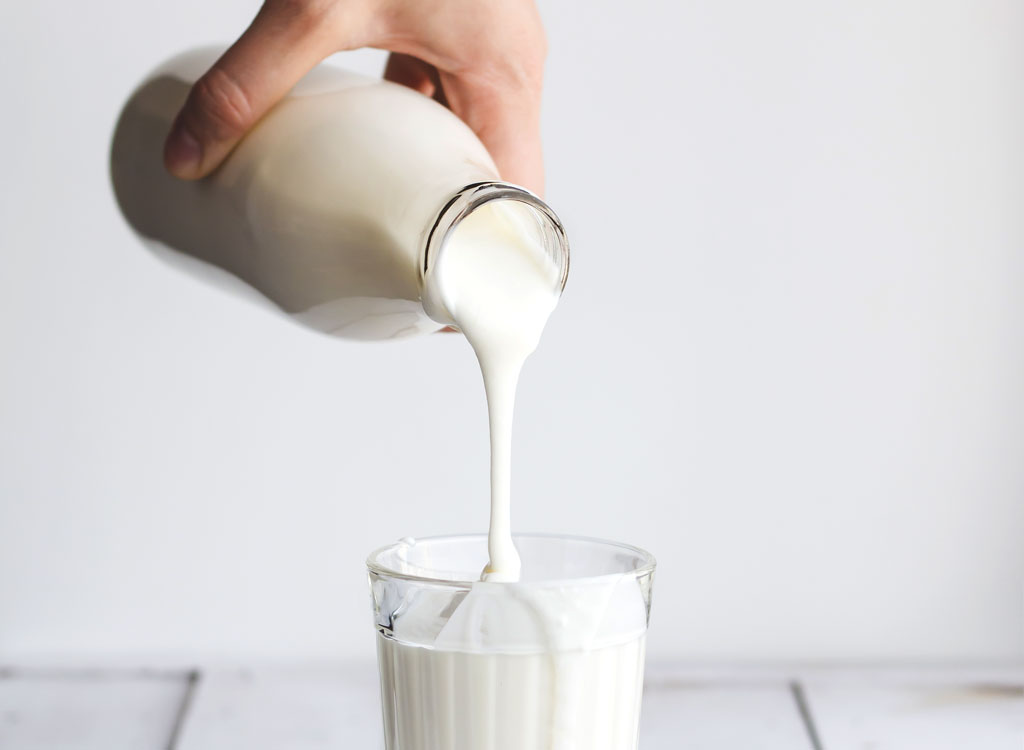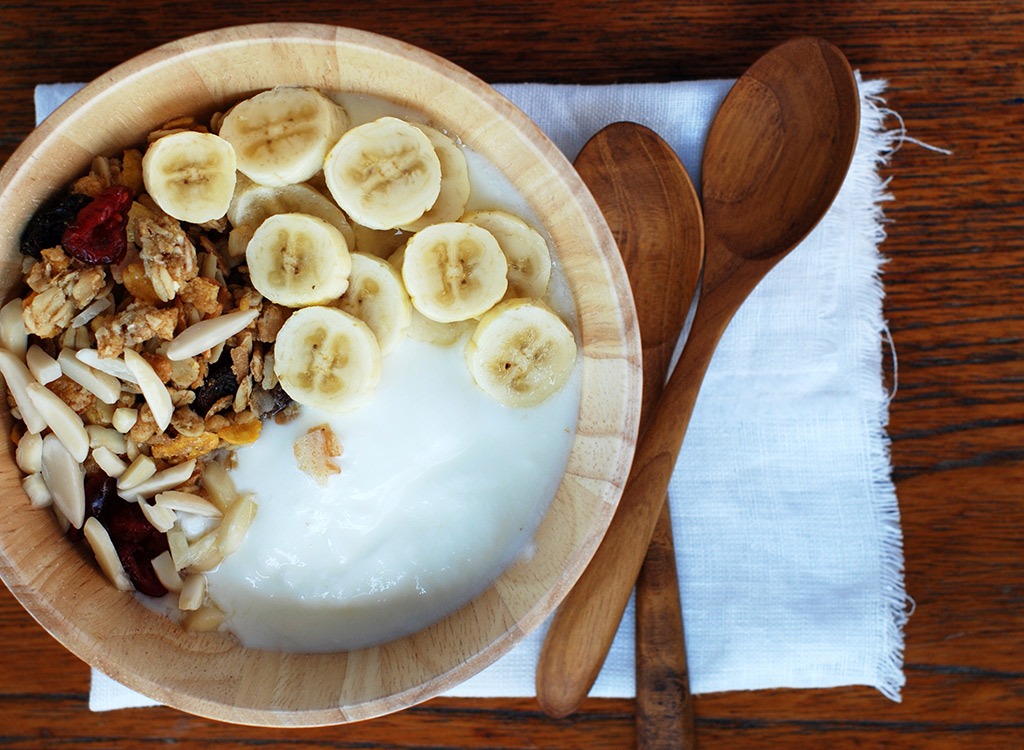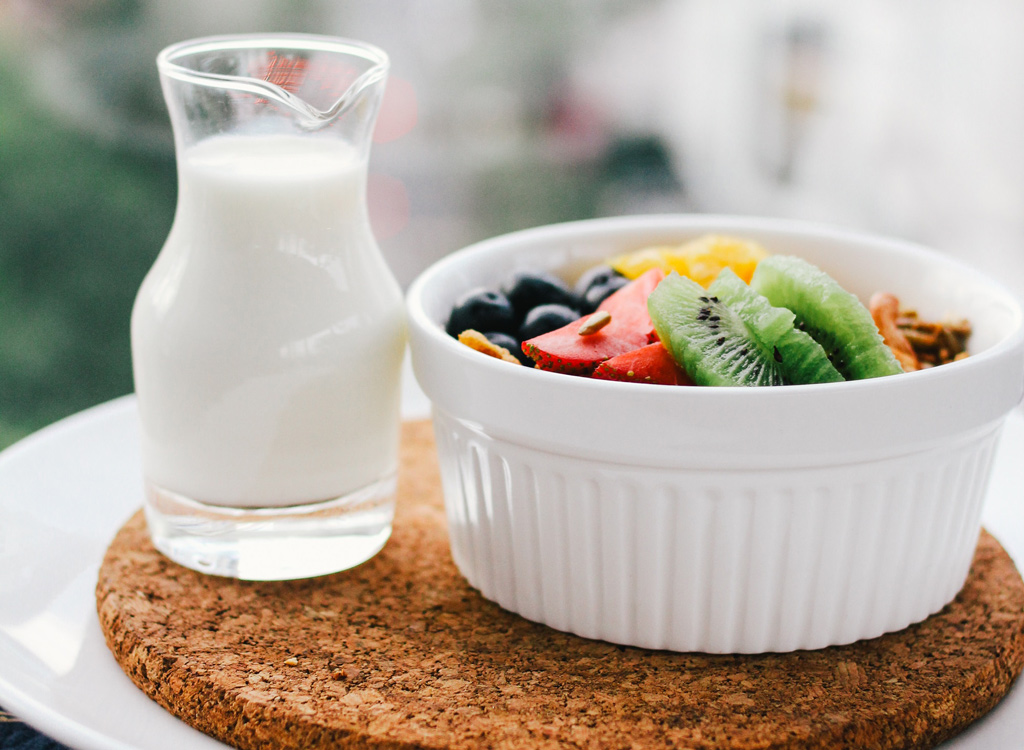6 Reasons to Start Drinking Kefir

Kefir is one of the most underrated sources of probiotics, usually overshadowed by its close cousin, yogurt. But while kefir is considered a drinkable yogurt, its benefits far outweigh its spoonable counterpart. Kefir is made by combining milk with kefir grains, which are a mix of bacteria and yeast, yielding a drink that contains up to 30 strains of gut-healing bacteria.
Probiotics are essential for maintaining a healthy and flourishing microbiome, which plays a significant role in keeping our digestive systems chugging smoothly, immune system on its A-game, weight in check, and our hormones balanced. After you’ve read up on these six solid reasons to start drinking kefir, jump on the bandwagon by stocking your fridge with these 9 Best Probiotic-Rich Kefirs for Your Gut. While the tart drink is super refreshing when sipped on its own, you can also add it to high-fiber cereal, smoothies, homemade salad dressings, and even use it as a base for chia pudding.
It’s Lactose-Friendly

If you suffer from lactose intolerance, getting your daily probiotic fix likely requires you to venture outside the dairy aisle. However, adding kefir to your diet is a smart move considering the drinkable yogurt has been found to improve lactose digestion and tolerance in adults with lactose maldigestion, a study in the Journal of the American Dietetic Association reports. The lactic acid in fermented dairy foods (such as kefir and yogurt) helps break down the lactose, which makes it easier on the digestive system.
It Can Rev Weight Loss

Study after study has shown that protein increases satiety and helps rev the metabolism: two key factors that spur weight loss. A one-cup serving of kefir typically packs in about 8–11 grams of protein, specifically a mixture of dairy-based whey and casein. Casein digests slower than other forms of protein, which helps maintain satiety and muscle synthesis for longer. A study published in the European Journal of Nutrition found that women who ate four daily servings of dairy including kefir showed significantly greater reductions in weight, BMI, and waist circumference than women who ate only two daily servings of low-fat dairy products.
It Can Alleviate Allergies

Whether you choose dairy kefir or soy milk kefir, both options have shown promising results in terms of preventing food allergies. According to a study in the journal Science of Food and Agriculture, kefir was found to suppress the Immunoglobulin E (IgE) response, an antibody produced when the immune system overreacts to an allergen. Not only that, the fermented drink showed a significant decrease in meat-derived bacteria Clostridium perfringens (C. perfringens), one of the most common sources of food poisoning.
It May Prevent Cancer

A study in the Brazilian Journal of Microbiology sheds light on the finding that fermented dairy products, such as kefir, can suppress early-stage tumors by delaying enzyme activities that convert pro-carcinogenic compounds to carcinogens. The study suggests that kefir potentially contains anti-tumoral properties and promotes resistance to intestinal infections.
It Can Keep Your Gut In Check

Probiotics are notorious for their ability to improve and maintain gut health—including protecting against certain gastrointestinal diseases. While H. pylori is closely associated with peptic ulcers, chronic atrophic gastritis, and gastric cancer, a meta-analysis in the World Journal of Gastroenterology shows that probiotics may eradicate symptoms of this bacteria. In fact, Lactobacillus species (found in kefir) relieved adverse side effects associated with H. pylori therapy, resulting in an increased number of patients who completed their eradication therapy as well as total bacteria eradication success.
It Maintains Strong Bones

Most kefirs contain about 30 to 40 percent of your daily value of calcium, a nutrient essential for maintaining strong and healthy bones. While kefir can certainly help you reach your daily calcium goal, a study in the Osteoporosis Journal found that the drink can also help your body better absorb calcium to help improve bone mass. For more skeleton-friendly foods, don’t miss The 20 Best Calcium-Rich Foods That Aren’t Dairy.








